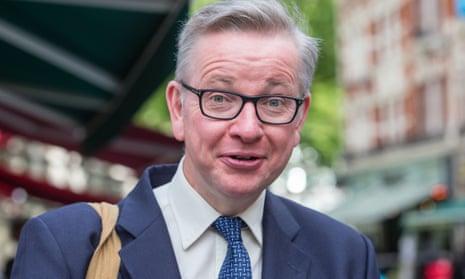Before you broke up, I was watching a parliamentary session on TV and noticed a lonely, much-reduced-looking figure on your backbenches. What outsider, knowing nothing of recent history, would have guessed that the MP in question had once ruled his area of government with absolute power, making decisions that have affected the lives of hundreds of thousands of people since?
You will know this better than me, Ms Greening; the remains of his rule reach deep into your sphere of work. As a parent, trying to explain our parliamentary system, I admit I’ve found it difficult to do justice to the way a secretary of state for education can one day make a decision single-handedly, on his sole say-so, that all children will study X, and in the blink of an eye that very same person can be off doing something completely different – or in the case of Michael Gove, not much at all.
I happen to know, for example, that the reason why thousands of 10- and 11-year-olds mugged up on subjunctives for the spelling, punctuation and grammar (Spag) test was thanks to Mr Gove and Mr Gove alone. He overruled the grammarians who told him to leave it out. Similarly, it was largely the result of Mr Gove’s insistence that most English 15-16-year-olds have not been reading an American play or novel for their exam. Many will have been studying a Scottish one, Jekyll and Hyde, on the basis, I assume, that Mr Gove thinks Robert Louis Stevenson is more “English literature” than John Steinbeck. Is there some Govean measure of cultural proximity that finds literature originating in Scotland closer to English literature than that from the US? The Incredible Shrinking Gove doesn’t answer.
Every day I am in schools, I see the ludicrous results of primary school children being required, thanks to him, to expand their noun clauses. Under this statutory craziness, children learn that “forest” is not good; “verdant forest” is better; “gloomy, verdant forest” is better still, and the “expansive, verdant, gloomy forest which stretched extensively under the translucent blue sky” is superb. What’s more, if you can place your expanded noun phrase in front of your main clause, you will be so-o-o-o “expected level”.
According to this ludicrous stipulation, “In the gloomy, verdant forest, sat a mushroom” is much, much better than “A mushroom sat in the gloomy, verdant forest.” Excuse me if I wonder if the tail is wagging the dog here. Is good writing the kind of writing that inserts phrases and clauses in places where Gove thinks best? Whatever became of the idea that good writing is writing that matches purpose, function or audience? It got chucked out. Why?
Mr Gove shrinks another inch.
For someone so sure of the big picture, you might imagine that his schemes joined up. Not so. These oh-so-important stipulations for primary children evaporate in secondary school. In their place, another contraption looms: the Govean English GCSE.
This has been designed perfectly to measure 15- and 16-year-olds’ ability to memorise chunks of literature. Two students might score equally on their ability to argue for a particular interpretation of Macbeth, but the one who paraphrases will not score as well as the one who remembers verbatim. In the chaos left in the wake of Gove’s departure, this matter is much disputed, with teachers telling me that they have received contradictory advice on it. And the Incredible Shrinking Gove is now too small to clarify.
In one respect, it doesn’t matter whether paraphrasing and memorising are given equal weight or not: teachers are encouraging students to learn their quotes. Nothing wrong with that, you might say, until you see just how much work that is. For example: it might involve a slew from each of Macbeth, Jekyll and Hyde, An Inspector Calls and 15 poems in the anthology they are studying. As you won’t know what’s going to be asked in the exam, you will have to learn a range of quotes from all these texts, hoping that questions will turn up to match the quotes you’ve learned. If you find you have learned mostly the “wrong” quotes to answer the questions, you can reassure yourself that this will greatly aid those exam-setters who believe exams shouldn’t be designed to find out what students know.
You might also wonder what quite so much quote-learning and question-guessing has to do with becoming critically astute or enthusiastic about literature. Ideally, the man responsible would be able to answer, but he can’t. He’s shrunk.
Is it cheeky to ask you, Ms Greening, if you win this election, do have plans to clear up Mr Gove’s little messes?
Yours, Michael Rosen

